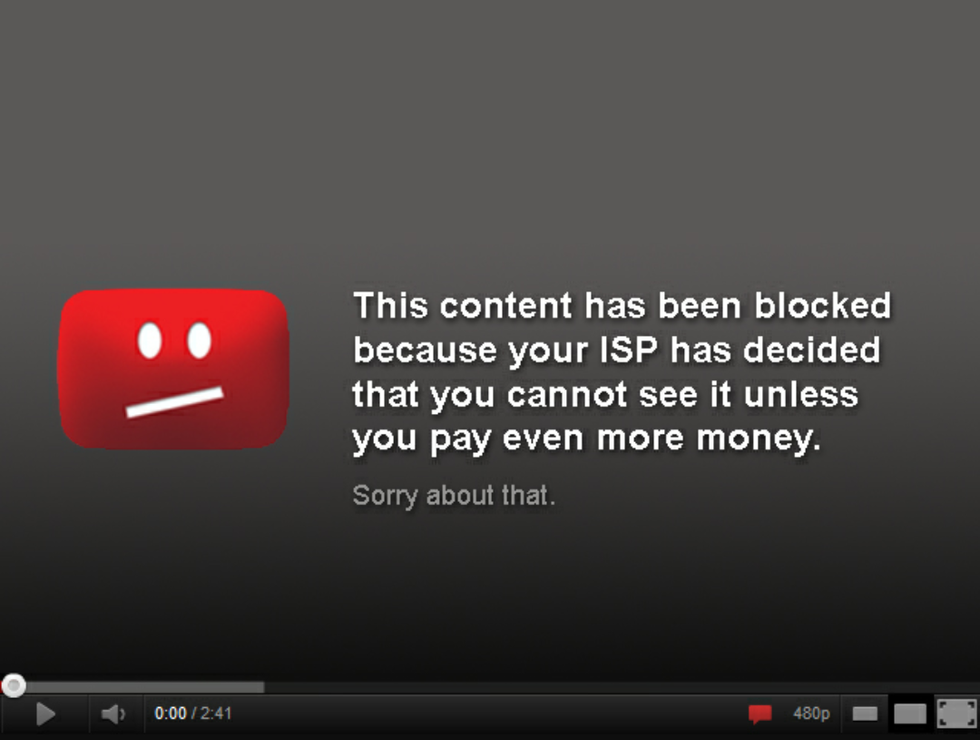On December 14th, 2017, a final decision about net neutrality laws in the USA will be made. It will be a decision that has a direct impact on every person in America, because it could potentially change the entirety of the internet as we know it. How can it do that, you may ask. Let's start with what exactly net neutrality is.
Net neutrality is the ethical principle that guides the internet, it's usage, and the way it is provided to the people: It preserves the right to communicate freely online.
Net neutrality means that an ISP (or an Internet Service Provider) must provide it's users with an open and free path to the internet. It means that an ISP cannot discriminate against any applications or content on the internet that goes against anything that the ISP disagrees with in any way.
Naturally, next, you might ask: What could possibly happen if we lost net neutrality?
If net neutrality stops being the "law of the internet," ISPs can have a fast lane and a slow lane. Companies can pay extra to be on a fast lane. An internet user might get really fast access to companies that can afford it like Facebook, but really slow down websites that couldn't afford it- like your school's website. ISPs could potentially block any website or company that didn't pay them.
If ISPs have the access to block sites that don't pay them, they also have the access to block any content they don't agree with. This, of course, could be NSFW content. However, this could also be content that goes against a political viewpoint of that particular ISP. Someone pay trillions of dollars to an ISP to block every republican or democratic idea. This doesn't even stop at political agendas, either. Small businesses who rely on the internet for their start-ups could be a thing of the past, since they wouldn't be able to pay companies like AT&T, Comcast, or Verizon to have the fast access that people are used to. If your school doesn't have the money to pay these companies, they might have to up tuition to be able to continually provide online classes to students.
What if you lived in a world where your cell phone company blocked any incoming or outgoing call with the number 9 in it? This would be just like that. Cable companies would hold the power to dictate what you content you saw, and that could be up to the highest bidder.
Before you say to yourself that the internet isn't free, remember that you can search anything that you want, and be provided with the information. You can start a website, and that website can have the same accessibility to it that any other website has.
The abolition of new neutrality is a direct attack on our first amendment, and you shuold be scared of what the future looks like if net neutrality ceaceses to exist.






 The minimum wage is not a living wage.
StableDiffusion
The minimum wage is not a living wage.
StableDiffusion
 influential nations
StableDiffusion
influential nations
StableDiffusion












